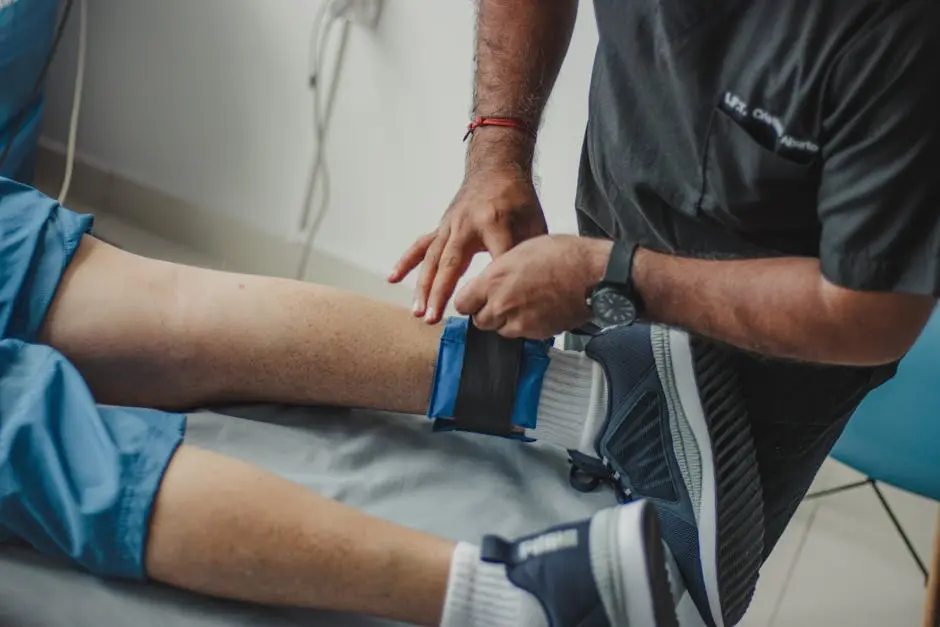When to See a Sports Injury Chiropractor After a Workout Mishap
Injuries can happen to anyone, especially during workouts. Whether you're a seasoned athlete or a casual gym-goer, knowing when to seek help from a sports injury chiropractor can make all the difference in your recovery. In this blog, we’ll explore the signs indicating you should consult a chiropractor after an exercise mishap, ensuring you get back on track as quickly and efficiently as possible.
Understanding Common Workout Mishaps
Before diving into the signs that indicate a need for chiropractic care, it's essential to recognize the types of injuries that can occur during workouts. From sprains and strains to more severe injuries, understanding what can happen can help you be more proactive in your recovery.
Many workout mishaps stem from a lack of proper warm-up, overexertion, or using incorrect form. For instance, a simple twist of the ankle while running can lead to lingering pain if not addressed properly. Acknowledging these common injuries means you can better anticipate when it's time to reach out for help.
In addition to acute injuries, chronic issues may develop over time, often without you even realizing it. Continuous stress on the joints, muscles, and tendons can lead to conditions such as tendonitis or bursitis. Spotting these problems early can prevent them from escalating and potentially save you from more invasive treatments down the line.
Recognizing Pain That Won't Go Away
One of the most common indicators that you should see a chiropractor is if the pain from your workout mishap persists. While it’s normal to experience some soreness after an intense workout, understanding the difference between soreness and pain is vital for your health.
If the pain lingers for more than a few days or intensifies over time, this signals that something might be wrong. This is where the expertise of a sports injury chiropractor becomes invaluable. They can help differentiate between standard post-workout ache and something that warrants more attention.
Additionally, if pain is accompanied by other symptoms like swelling, bruising, or difficulty performing everyday activities, it's time to seek professional advice. Ignoring these signs could result in further damage, making a visit to a chiropractor essential for a full recovery.
Understanding Your Range of Motion
After an injury, assessing your range of motion is crucial. If you find it difficult to move a joint or limb in the usual way, it might be time to seek professional help. Limited motion can indicate underlying issues, such as a joint misalignment or soft tissue damage.
Equally important is to recognize how these limitations affect your daily life. Are you struggling to reach for something on the top shelf? Does tying your shoes feel uncomfortable? These minor inconveniences can hint at bigger problems, and consulting with a sports injury chiropractor can help you regain your full motion.
The beauty of chiropractic care is its holistic approach. Not only do they work on the affected area, but they also consider the surrounding muscles and joints to ensure comprehensive healing. Getting your range of motion back could be the key to returning to your workout routines without fear of reinjury.
Exploring the Benefits of Chiropractic Care
Chiropractors specialize in diagnosing and treating musculoskeletal issues. Here, we will explore how chiropractic care can accelerate recovery and improve your overall performance after a sports injury. One of the main benefits is the focus on realigning the spine and other joints, which can relieve not only pain but also tension throughout your body.
Moreover, chiropractic care promotes natural healing. Many athletes find that adjustments help them recover faster without relying on medications. This is particularly important for those who wish to avoid the side effects that pharmaceutical solutions can sometimes bring.
In addition to pain relief, many patients report improved mobility and flexibility after chiropractic sessions. Increased blood flow and enhanced nervous system function contribute to a better athletic performance overall, making it a valuable resource for anyone who engages in regular physical activities.
What to Expect During Your First Appointment
If you decide to see a sports injury chiropractor, it’s helpful to know what to expect during your first visit. Typically, your chiropractor will start with a comprehensive evaluation that may include discussing your medical history, current symptoms, and any previous injuries.
Following this initial assessment, they will usually perform physical tests to gauge your range of motion and identify areas of discomfort. This step is crucial, as it lays the groundwork for a tailored treatment plan that addresses your specific needs.
Once the assessment is complete, the chiropractor may employ various techniques such as spinal adjustments, exercises, or stretches. Don't hesitate to ask questions during this process. A good chiropractor will want to explain everything clearly and will encourage you to be an active participant in your recovery.
When to Follow-Up with Your Chiropractor
After your initial appointment, understanding when to go back for follow-ups is crucial for a solid recovery process. Consistent treatment can ensure that the progress made during your first visit is maintained and built upon.
Typically, chiropractors will suggest a schedule based on the severity of your injury and your body's response to treatment. If you find that your symptoms are not improving or new ones emerge, it's vital to go back sooner rather than later.
Additionally, attending follow-up appointments not only aids your recovery but also allows for ongoing assessment of your condition. Staying on top of your treatment plan can help prevent further injuries, enabling you to enjoy your workouts to the fullest.
Wrapping Up Your Recovery Journey
Navigating the world of sports injuries can be daunting, but understanding when to seek help from a sports injury chiropractor will empower you to make the right choices for your health. Always listen to your body and don't hesitate to reach out for expert guidance when needed. Getting professional help could be the key to a quick and effective recovery.
